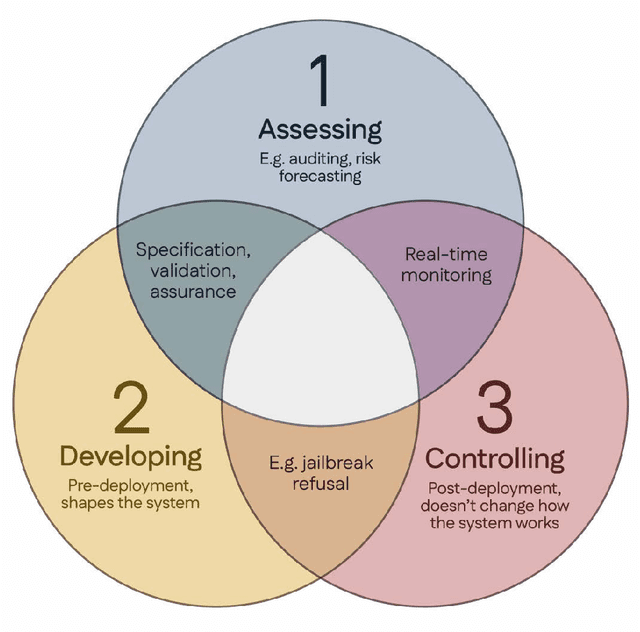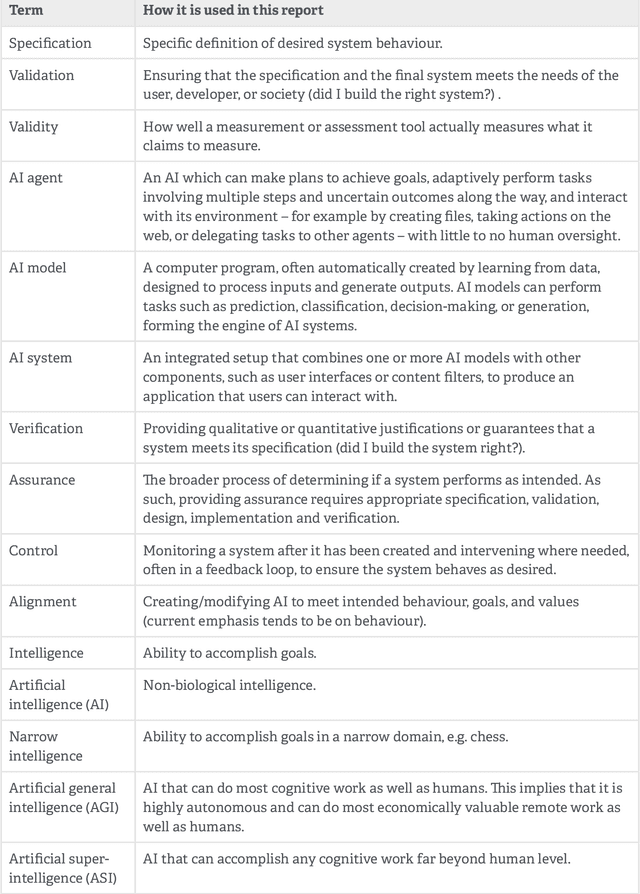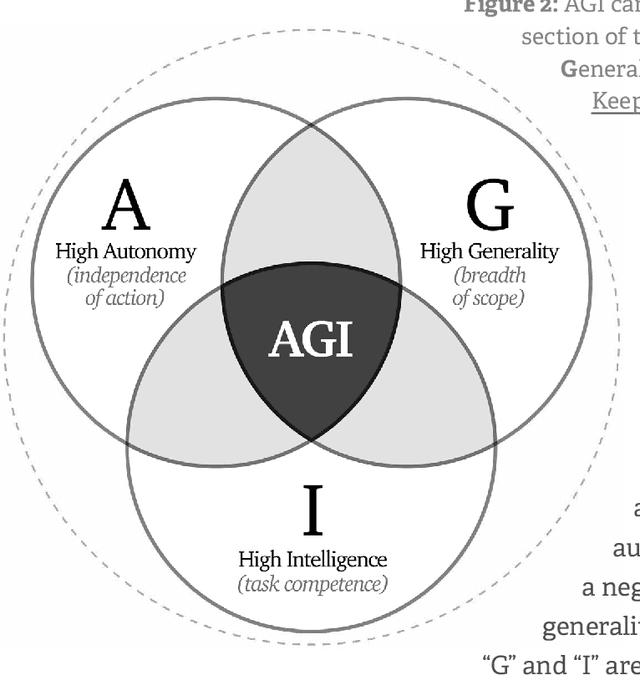Robert Trager
The Singapore Consensus on Global AI Safety Research Priorities
Jun 25, 2025


Abstract:Rapidly improving AI capabilities and autonomy hold significant promise of transformation, but are also driving vigorous debate on how to ensure that AI is safe, i.e., trustworthy, reliable, and secure. Building a trusted ecosystem is therefore essential -- it helps people embrace AI with confidence and gives maximal space for innovation while avoiding backlash. The "2025 Singapore Conference on AI (SCAI): International Scientific Exchange on AI Safety" aimed to support research in this space by bringing together AI scientists across geographies to identify and synthesise research priorities in AI safety. This resulting report builds on the International AI Safety Report chaired by Yoshua Bengio and backed by 33 governments. By adopting a defence-in-depth model, this report organises AI safety research domains into three types: challenges with creating trustworthy AI systems (Development), challenges with evaluating their risks (Assessment), and challenges with monitoring and intervening after deployment (Control).
Open Problems in Machine Unlearning for AI Safety
Jan 09, 2025Abstract:As AI systems become more capable, widely deployed, and increasingly autonomous in critical areas such as cybersecurity, biological research, and healthcare, ensuring their safety and alignment with human values is paramount. Machine unlearning -- the ability to selectively forget or suppress specific types of knowledge -- has shown promise for privacy and data removal tasks, which has been the primary focus of existing research. More recently, its potential application to AI safety has gained attention. In this paper, we identify key limitations that prevent unlearning from serving as a comprehensive solution for AI safety, particularly in managing dual-use knowledge in sensitive domains like cybersecurity and chemical, biological, radiological, and nuclear (CBRN) safety. In these contexts, information can be both beneficial and harmful, and models may combine seemingly harmless information for harmful purposes -- unlearning this information could strongly affect beneficial uses. We provide an overview of inherent constraints and open problems, including the broader side effects of unlearning dangerous knowledge, as well as previously unexplored tensions between unlearning and existing safety mechanisms. Finally, we investigate challenges related to evaluation, robustness, and the preservation of safety features during unlearning. By mapping these limitations and open challenges, we aim to guide future research toward realistic applications of unlearning within a broader AI safety framework, acknowledging its limitations and highlighting areas where alternative approaches may be required.
Towards Publicly Accountable Frontier LLMs: Building an External Scrutiny Ecosystem under the ASPIRE Framework
Nov 15, 2023Abstract:With the increasing integration of frontier large language models (LLMs) into society and the economy, decisions related to their training, deployment, and use have far-reaching implications. These decisions should not be left solely in the hands of frontier LLM developers. LLM users, civil society and policymakers need trustworthy sources of information to steer such decisions for the better. Involving outside actors in the evaluation of these systems - what we term 'external scrutiny' - via red-teaming, auditing, and external researcher access, offers a solution. Though there are encouraging signs of increasing external scrutiny of frontier LLMs, its success is not assured. In this paper, we survey six requirements for effective external scrutiny of frontier AI systems and organize them under the ASPIRE framework: Access, Searching attitude, Proportionality to the risks, Independence, Resources, and Expertise. We then illustrate how external scrutiny might function throughout the AI lifecycle and offer recommendations to policymakers.
International Governance of Civilian AI: A Jurisdictional Certification Approach
Sep 11, 2023



Abstract:This report describes trade-offs in the design of international governance arrangements for civilian artificial intelligence (AI) and presents one approach in detail. This approach represents the extension of a standards, licensing, and liability regime to the global level. We propose that states establish an International AI Organization (IAIO) to certify state jurisdictions (not firms or AI projects) for compliance with international oversight standards. States can give force to these international standards by adopting regulations prohibiting the import of goods whose supply chains embody AI from non-IAIO-certified jurisdictions. This borrows attributes from models of existing international organizations, such as the International Civilian Aviation Organization (ICAO), the International Maritime Organization (IMO), and the Financial Action Task Force (FATF). States can also adopt multilateral controls on the export of AI product inputs, such as specialized hardware, to non-certified jurisdictions. Indeed, both the import and export standards could be required for certification. As international actors reach consensus on risks of and minimum standards for advanced AI, a jurisdictional certification regime could mitigate a broad range of potential harms, including threats to public safety.
Frontier AI Regulation: Managing Emerging Risks to Public Safety
Jul 11, 2023Abstract:Advanced AI models hold the promise of tremendous benefits for humanity, but society needs to proactively manage the accompanying risks. In this paper, we focus on what we term "frontier AI" models: highly capable foundation models that could possess dangerous capabilities sufficient to pose severe risks to public safety. Frontier AI models pose a distinct regulatory challenge: dangerous capabilities can arise unexpectedly; it is difficult to robustly prevent a deployed model from being misused; and, it is difficult to stop a model's capabilities from proliferating broadly. To address these challenges, at least three building blocks for the regulation of frontier models are needed: (1) standard-setting processes to identify appropriate requirements for frontier AI developers, (2) registration and reporting requirements to provide regulators with visibility into frontier AI development processes, and (3) mechanisms to ensure compliance with safety standards for the development and deployment of frontier AI models. Industry self-regulation is an important first step. However, wider societal discussions and government intervention will be needed to create standards and to ensure compliance with them. We consider several options to this end, including granting enforcement powers to supervisory authorities and licensure regimes for frontier AI models. Finally, we propose an initial set of safety standards. These include conducting pre-deployment risk assessments; external scrutiny of model behavior; using risk assessments to inform deployment decisions; and monitoring and responding to new information about model capabilities and uses post-deployment. We hope this discussion contributes to the broader conversation on how to balance public safety risks and innovation benefits from advances at the frontier of AI development.
 Add to Chrome
Add to Chrome Add to Firefox
Add to Firefox Add to Edge
Add to Edge